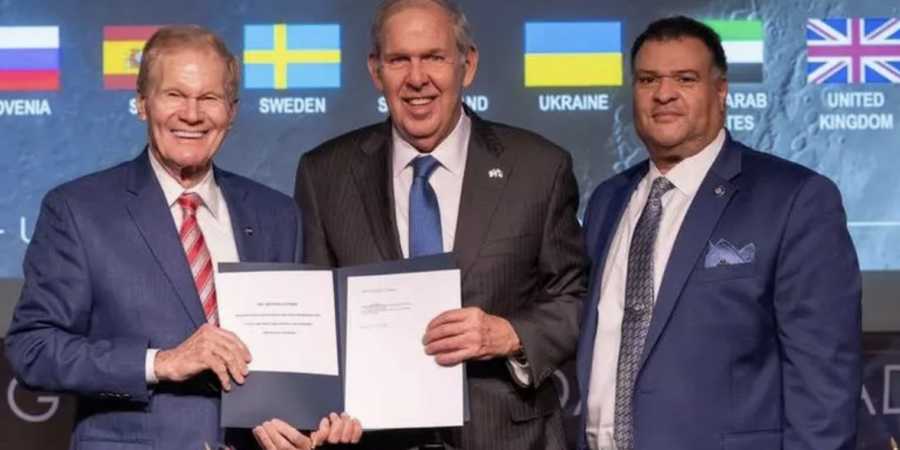NASA administrator Bill Nelson announced an official visit to Panama and the exhibition of space achievements at the Biomuseum in January 2025.
Panama became the 49th country and the first in Central America to adhere to the Artemis Agreements, thus marking a milestone in its social, economic, environmental, scientific and technological development.
The signing was carried out at NASA headquarters in Washington, D.C., with the participation of Panama’s ambassador to the United States, José Miguel Alemán, and NASA administrator, Bill Nelson.
Panama now has a commitment to the research and peaceful exploration of space, including the Moon and Mars. “Today, Panama takes its place among many other nations that look not only to our own horizons, but to the horizons beyond this planet, exploring, learning and contributing to the collective knowledge of humanity,” said Ambassador José Miguel Alemán.
For his part, NASA administrator Bill Nelson said that “NASA is proud to welcome Panama to the signing of the Artemis Agreements, as we extend the peaceful exploration of space to all nations.”
Nelson also announced an official visit to Panama in mid-January 2025, during which space achievements will be exhibited at the Biomuseum, highlighting Panama’s historic connection with NASA.
In a statement from the Foreign Ministry, it is stated, regarding the impact and benefits that the Artemis Agreements will allow the country, that it would benefit from space technologies applied to terrestrial problems such as climate change, natural resource management and natural disaster prevention. In addition, they will promote the development of educational programs in space sciences and STEM disciplines, strengthening capacities in areas such as aerospace engineering, robotics and remote sensing.
While, from an economic perspective, Panama’s strategic geographical position makes it a key ally in the supply chain for space missions, attracting technological investments and promoting highly qualified jobs and innovation.
The Artemis Agreements were promoted by NASA since 2020, there are already about 50 member countries; and they establish principles for the peaceful and sustainable exploration of outer space, including the Moon and Mars. These agreements, based on the values of the 1967 Outer Space Treaty, foster international cooperation in areas such as space debris mitigation and the interoperability of space systems.
